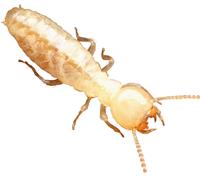Each year we receive queries from local media outlets seeking advice and commentary relating to (choose one from each category) wet winter/dry winter, cold winter/warm winter, short winter/long winter. Because we never want to miss an opportunity for free publicity, we do our best to help.
This year we are (mostly) all welcoming an early spring after a mild, fairly dry winter and of course we have been asked what the impact will be on pest levels. We have a two word answer; look out! The biggest single driver for pest activity and numbers is temperature. Virtually every pest that we deal with is staged for an early start to their active season.
When the weather gets nice we often decide to go outdoors for a walk. Don’t forget the DEET repellant. As soon as the snow is gone ticks begin to emerge from under the leaf litter and they are eager for a blood meal after the winter. Ticks are unable to reproduce or molt (move onto the next life stage) without a blood meal. You don’t want that to be you.
Termites, which retreat below the frost line to wait out the winter have begun coming up closer to the surface to resume eating the same structural timber in your basement that they retreated from late last fall. If soil temperatures are 50 degrees or warmer, termites can be active. In fact, we have begun to service Sentricon customers and have found active termites in some bait stations already.
Carpenter ants enter a dormant state known as diapause at the onset of winter. Although it is still rather early in the season, we have already begun to receive some calls. Carpenter ants will get much more active when we have temperatures consistently above 70 degrees. Look for a post in the next couple of weeks with more information about early season carpenter ants and what that might mean. Or, if you’re already experiencing that phenomenon, call Braman.
Some wasp, hornet and yellow jacket queens have awoken. You may have seen a few around your house. They may even have spent the winter hunkered down behind some insulation in your attic. These overwintering queens are all that survives each winter. The rest of the insects in the colony die. The queen, who was fertilized last year, emerges and starts the new colony; making the nest, laying eggs, foraging for food and tending the brood. Interestingly, warm winters can be detrimental; if queens emerge too early they risk starving to death because their usual plant and animal foodstuffs are not yet available. If these queens are controlled early in the spring, you will have less trouble with large nests later on this summer. We do want to be aware that these species are pollinators, so we have no desire to erase them from the planet; we wish only to protect you and yours from dangerous stings.
To recap, warm weather brings pests. So, be on the lookout and remember that Braman Termite & Pest Elimination is here to protect your health and property.

